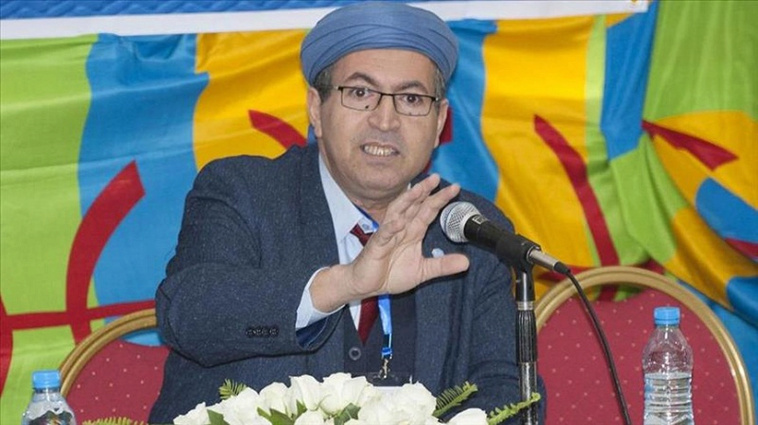Rachid Rakha calls for granting autonomy to the Amazigh regions of North Africa, including the Rif

On Saturday, in the Moroccan city of Ifrane (central), Nadorcity
opened the eighth conference of the “Amazighs of the World,” with a call for granting autonomy to the Amazigh regions in North Africa.
Rachid Rakha, President of the World Amazigh Rally (a non-governmental organization), called in a statement to Anadolu Agency, on the sidelines of the opening of the conference organized by the Rally, under the slogan “What is the common societal and value-based project of the Amazigh people?”, to grant autonomy to the Amazigh regions in the north. Africa, such as the Algerian Kabylie region, the Rif (northeast), Souss (central) in Morocco, and Azawad in northern Mali.
Rakha also called for the establishment of a confederation between North African countries, the abolition of the borders between these countries, and for each North African country to recognize the autonomy of each region.
He went on to say, “So that the citizens of these countries can manage their areas according to their privacy and the wealth of each party,” adding that this political form that he calls for “makes life easier for citizens, provided that it is based on democracy and participation and in accordance with the Amazigh values, which are solidarity, equality, and peaceful work.”
“Rakha” demanded autonomy for the Rif region (north-eastern Morocco), Souss and the Anti-Atlas (central) south-eastern Morocco, the Kabylie and M’zab region in Algeria, and Azawad in northern Mali.
He said, “The autonomy of these regions will enable the sharing of power between the center and the regions in these countries, and the distribution of wealth between the regions in a fair manner. This will open the door to democracy more, and democracy opens the way for true development.”

In turn, the “Amazigh Yazid,” the Azawadi activist, in a statement to Anadolu, demanded autonomy for Azawad from Mali, stressing that “the Amazighs of Azawad are confident in their rights to independence and will obtain them by all means, whether Mali loves it or hates it.”
He continued, saying that the Azawad region is rich in natural resources, so Mali “seeks to exploit them without giving rights to the Amazigh, the indigenous people of the region.”
As for Mina Ben Sheikh, head of the Moroccan branch of the World Amazigh Association, she said that Morocco “although it has taken important steps in recognizing the Amazigh language and culture, culminating in its approval of the Amazigh language as an official language in the country alongside Arabic, this does not reach the ambition to which we aspire.” “As Berbers.”
She mentioned what she considered a “decline” in recent years in teaching Amazigh in some regions of Morocco and the Moroccan public media, and the delay in issuing laws approved by the Constitution to activate the demarcation of Amazigh in administration and public life in Morocco. She said that “there is still marginalization affecting the Amazigh language in Morocco.” She called for “complete equality between Arabic and Amazigh.”
For his part, Hassan Ahjij, head of the World Mountain Peoples Association (non-governmental), called for “lifting the injustice against the Amazigh who inhabit the mountains, and against mountain people across the world who live in marginalization and harsh natural conditions.”
He stressed the need to preserve what he called the “mountain identity,” which has been subjected to marginalization, impoverishment, and globalization, saying, “We announce that the mountain residents are crying out to preserve their identity or what remains of it.”

The “International Amazigh Assembly” was founded about 4 years ago, by a number of founders of the “International Amazigh Congress” (founded in 1995), before they separated from the latter, following an organizational crisis in 2008.
It is “an international non-governmental association concerned with human beings.” The Amazigh and all its identity issues, cultural, legal, historical and geographical, were founded on a progressive and pluralistic basis for the purpose of introducing the Amazigh issue and the marginalization, exploitation and falsification, if not erasure, of the Amazigh demographic heritage,” as stated on the Gathering’s website.
Muhammad Al-Tahri / Anatolia

